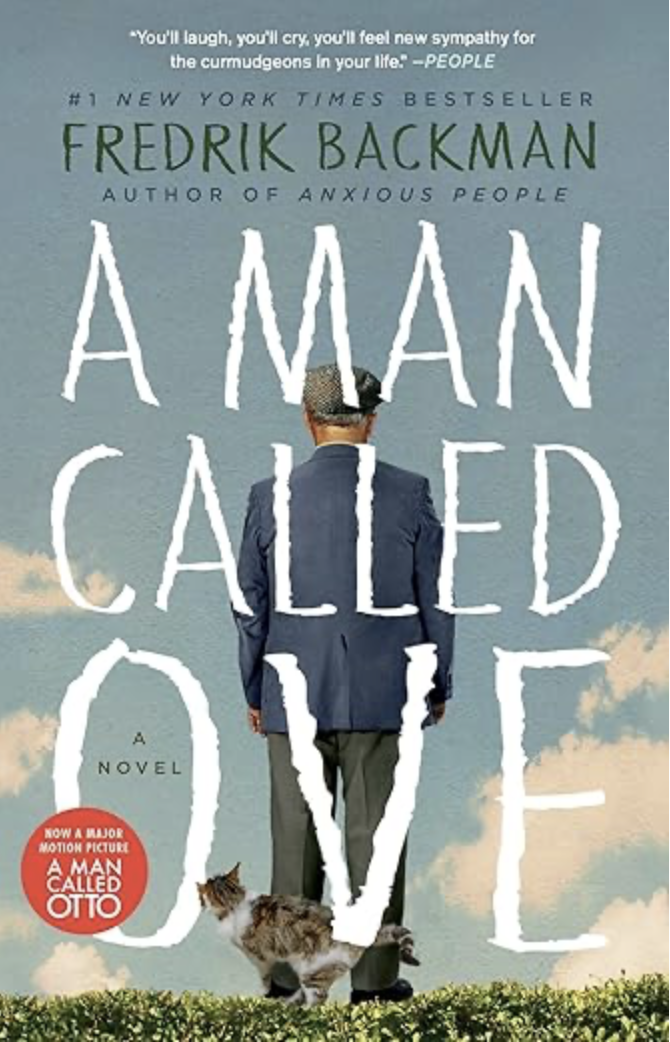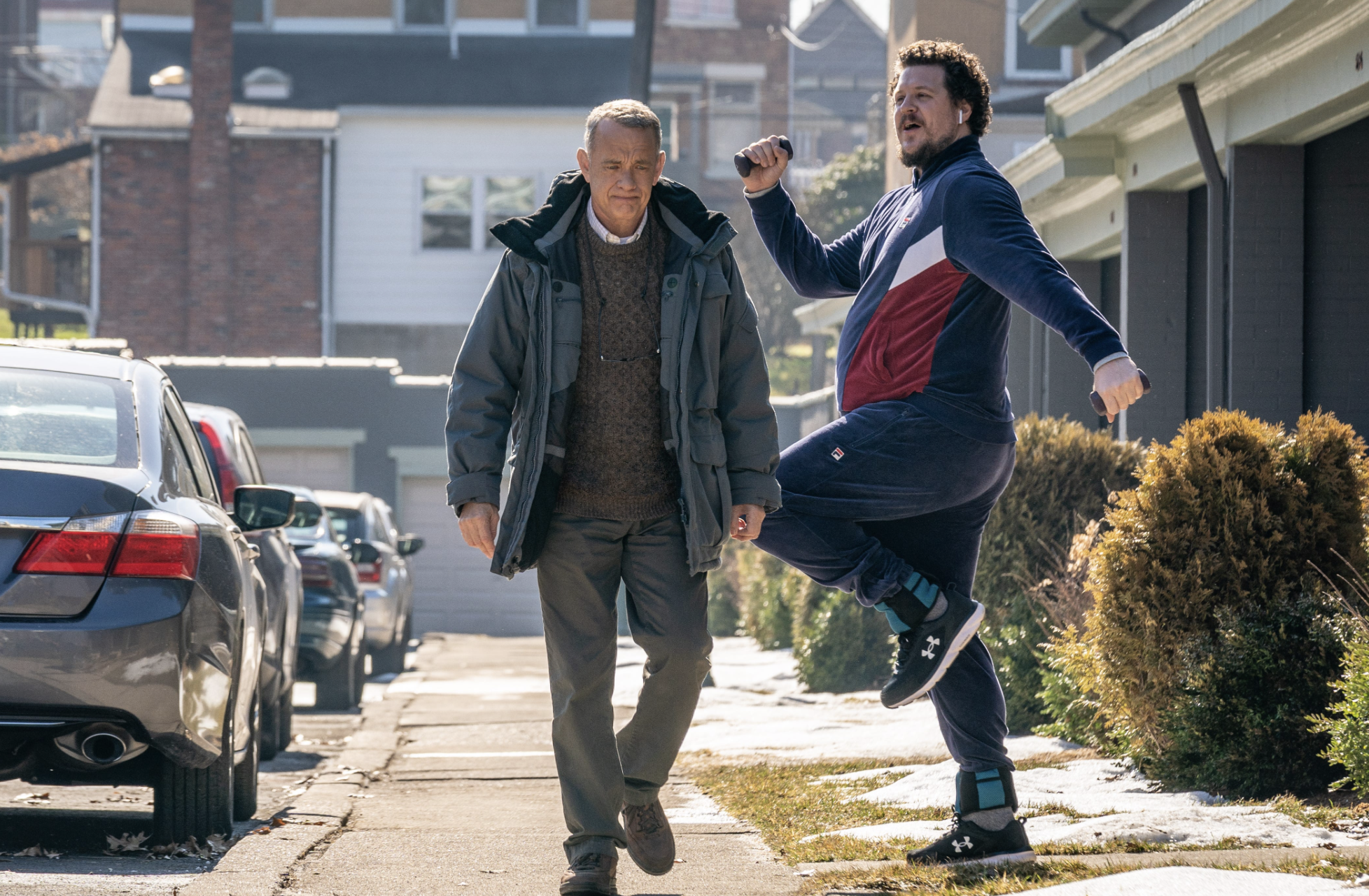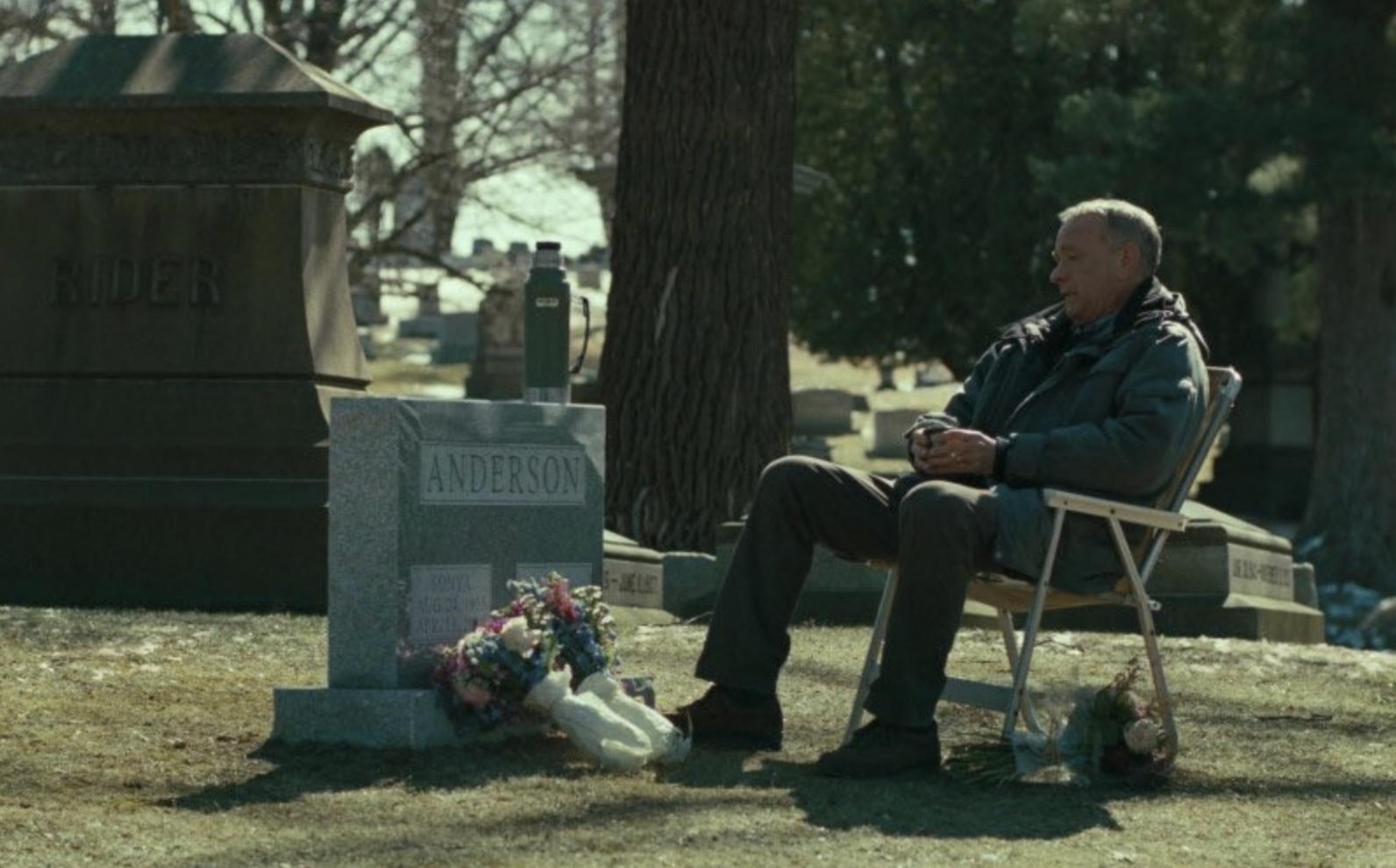How A Man Called Otto Shows the Hidden Dangers of Loneliness and Isolation
Exploring the psychological effects of isolation and the power of human connection through Otto's journey.
Exploring the psychological effects of isolation and the power of human connection through Otto's journey.

"A Man Called Otto" (Forster, 2022) is a warning against human isolation. While it may appear as a solely loving family-centered movie, the film puts a lot of focus on discussing the negative effects isolation can have on someone as we follow the journey of our protagonist Otto Anderson (Tom Hanks) following the passing of his wife, Sonya Anderson.
The movie begins by immediately highlighting Otto's grumpy neighbor tendencies. He yells at people driving through his neighborhood, gets mad at cats for invading his garage space and even gets into frequent arguments about the storing of trash and the delivery of packages. Yet as Otto returns to his house, another side of him shines through: his isolation. As he prepares to hang himself, he is interrupted by the arrival of two new neighbors, Tommy and Marisol, who eventually become central figures in the story and some of Otto's closest friends.
The process is slow, but bit by bit, through Otto's begrudging attitude, Tommy and Marisol manage to break through Otto's grumpy front and reach out to him, forming a true human connection.

As the story progresses, Otto continues to form true connections with the neighbors he once isolated himself from whether it's reconnecting with old friends and helping them retain the rights to their property, adopting the cat he once used to curse at or even becoming Marisol's driving instructor (although admittedly due to him perceiving Tommy as an incompetent driver himself).
Isolation is one of the most dangerous things humans can go through. As innately social creatures, isolation's effects have been repeatedly tied to psychological distress and can be the leading cause of a plethora of disorders.
The Campaign to End Loneliness finds that around 60% of people experiencing chronic loneliness experience mental health disorders, whereas only 15% of people who don't experience chronic loneliness will go through mental health disorders.
The fact that people who experience isolation are four times more likely to develop mental health disorders is incredibly alarming. One of the biggest reasons why loneliness is so detrimental is the lack of a support system. In psychology, a support system refers to a network of people, resources, and other tools a person has to help guide them through periods of emotional distress.
Friends and family who can listen to your struggles and provide comfort during hard times are so crucial to human flourishing, as it allows you to understand that you are not alone. Having people to rely on also allows you to unload some of your emotional baggage, and being unable to do so and having to hold in your own emotional toils is one of the leading causes for the onset of mental disorders.
Other than just the onset, isolation can continually play a role in the worsening and exacerbation of existing mental health problems. Without a strong support system, recovery from a mental health disorder can be extremely challenging, and the tendency to self-isolate can only lead to even more issues.
When the movie begins, we are almost immediately able to see that Otto is closed off from the world following his argument with two employees at a utility store. As time goes on, we are also quickly introduced to his desire to kill himself as he prepares a noose to hang from. Otto is a prime example of how chronic loneliness can often lead to suicide, as many people who experience such isolation believe no one will miss them when they are gone.
If you or someone you know is struggling with thoughts of suicide, please reach out for help. The National Suicide Prevention Lifeline is available 24/7 at 988. You are not alone, and help is available.
Throughout the movie, Otto's suicide attempts are repeatedly interrupted, most often by Marisol and her husband Tommy. Over time, we also see that his desire to end his life goes down as he begins to form new connections and find purpose in his life. Whether that is through becoming Marisol's driving instructor, playing with Marisol and Tommy's children, or even working to protect his old friends, Reuben and Anita, from real estate sharks trying to take their property away from them.

These social connections crept into Otto's life and eventually became one of the most important aspects of his daily routine. As he continues to form new bonds, like with the cat he adopts or the boy he takes in, the black and white world he lived in following the passing of his wife, took on new colors. Otto was no longer the cranky old lonely man, but rather a vital community member, father figure, and cat lover.
The movie's transition from a dark and hopeless theme to a more loving and family-centered vision, mirroring Otto's journey, highlighting the importance of social connection. Without it, Otto's life may have ended much sooner than it should have. However, because he was able to form the bonds he desperately needed, the final years of his life were those of happiness and celebration.
Otto's isolation began with the passing of his wife, yet his life continued after due to the people around him who gave him meaning. While the movie can be critiqued in that it tries to portray serious and dangerous topics like suicide in a way that doesn't truly capture the horrors of these issues, when it comes to the effects of isolation and how social connection can truly change one's life, the movie excels.
Otto's journey is one of growth and bonding that eventually leads to an improvement in his mental health and overall well-being. He is able to continue with his life due to the people around him, and as a movie focused on social connection, "A Man Called Otto" thrives at showing how even the most cold and grumpy of people can become loving and warm with a bit of affection.
But what are your thoughts on the movie? Have you or someone you know ever had an experience with a grumpy neighbor? Who knows, maybe all they need is someone to reach out to them.